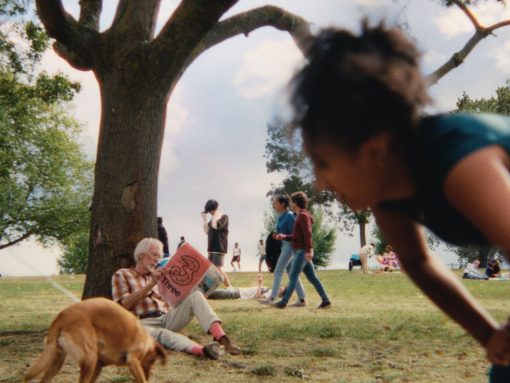Talking is only half the story: Three UK, in partnership with Samaritans, launch campaign to make the nation better listeners
Talking is only half the story: Three UK, in partnership with Samaritans, launch campaign to make the nation better listeners
McFly’s Tom Fletcher and Dougie Poynter explore the role of listening in their friendship
The COVID-19 pandemic has had a profound impact on the UK population’s mental health. New research* out today, commissioned by Three, has found that one in three Brits admit that their mental health has worsened during the pandemic, whilst 90% agreed that speaking to someone has positively affected their situation.
Today, Three UK, in partnership with Samaritans, is launching a new campaign (#BetterPhoneFriend) encouraging the nation to reach out, connect and listen to loved ones.
Working with best friends, McFly’s Tom Fletcher and Dougie Poynter, the campaign explores the benefits of listening, a variety of listener traits and how we can all learn to be better listeners. Tom and Dougie open up and discuss the impact the past year has had on each of them in a new video here.
Tom Fletcher said: “Listening is key to spotting when someone is going through a tough time. I know from my own experience; you can be right on the edge of what’s really on your mind but if someone isn’t listening it can make you pull back and you never quite get there. An important part of being a friend is just listening and giving them the space to say what they need to say.”
Dougie Poynter said: “Listening properly can be easier said than done. Truly being able to take the focus off yourself and be present for someone can be a challenge. That’s why this campaign struck a chord with us – encouraging others to make small changes can have a huge impact on people’s well-being.”
Julie Bentley, CEO at Samaritans, said: “We all know it’s important to talk, but it’s just as important to listen. Human connection and learning how to truly listen to one another has never been more important than it is right now. We’re proud to be supporting this campaign with Three today, and we are ready to listen to anyone who needs support.”
The #BetterPhoneFriend campaign marks the start of a three year partnership recently announced between Three and Samaritans, aiming to connect one million people to emotional support. As part of the campaign, Three has identified five listening personalities to help the nation recognise what type of listener they are and how they can improve active listening skills.
Aislinn O’Connor, Director of Marketing for UK and Ireland at Three, said: “We’re proud to be working with Samaritans on this campaign – they continue to be a lifeline for so many people, particularly over the past year. Like Tom and Dougie, we hope our campaign encourages more people to stay connected and listen to one another, as this is vital to look after ourselves and each other. We hope by spreading awareness of how to effectively listen – whether on the phone, during video calls or face to face – we can arm the UK with the appropriate tools and tips to have these important conversations.”
For more information on the listening personalities and how to be a #BetterPhoneFriend, visit www.three.co.uk/betterphonefriend
ENDS
Notes to Editors
*Source: Survey conducted in the UK by Censuswide with 2,000 consumers aged 16 – 55+, completed 19th – 22nd April 2021.
Notes to editors:
Be a #BetterPhoneFriend – What Type of Listener Are You?
The Filler: Do you hate the sound of silence? Those who fall in to ‘The Filler’ listening type will find themselves filling awkward silences or jumping in when someone is taking a while to respond to a question. Sometimes the person on the other end of the phone is trying to find the right words to describe how they’re feeling. Fillers need to be brave in the face of uncomfortable silences and encourage others to open up.
The Worrier: We worry about others from time to time and loved ones can experience things we might not know about or haven’t experienced ourselves. When it comes to helping them, sometimes how we see things can get in the way. Non-judgemental listening is the best way to help a friend and make them feel safe. Let them know you’re there to listen and you’re open minded about what they’re trying to tell you.
The Interviewer: When talking to friends and you can tell something is wrong, you want to get to the bottom of what’s wrong but you’re only asking questions with yes or no answers. This means your friend can’t really open up. Try asking open questions such as “how did that make you feel?” or “what did you think” to help the person on the other end of the phone have space to explore their feelings with you.
The Attention Splitter: When talking to someone and being distracted by something else – the internet, the dog, something on TV – whatever it is, we know it’s not as important as our friend, but we can’t help but feel distracted. Next time you find yourself splitting your attention, turn off or away from distractions and move to somewhere quiet to focus on your friend.
The Fixer: We’ve all been there. Your friends got a problem and you’re already thinking of ways to fix it. You mean well, but your friend might just want to be heard. Next time put your solutions aside and just make sure they know you are listening. Perhaps even repeating their thoughts and feelings back to them so they can reflect on it further.
Active Listening Tips from Samaritans
- Show you care – Focus on the other person, make eye contact and give them your full attention by being engaged. When starting the conversation resolve not to talk about yourself at all and aim to learn at least one new thing about the person who is talking to you.
- Have patience – It may take time and several attempts before a person is ready to open up. Effective listening is about creating trust with the other person. The person sharing shouldn’t feel rushed, or they won’t feel it’s a safe environment. If they’ve paused in their response, wait, they may not have finished speaking.
- Use open questions – That need more than a yes or no answer and follow up with questions like ‘Tell me more’. An open-ended question means not jumping in with your own ideas about how the other person may be feeling.
- Say it back – Check you’ve understood, but don’t interrupt or offer a solution. Repeating something back to somebody is a really good way to reassure them that they have your undivided attention.
- Have courage – If you’re worried someone is suicidal, it’s okay to ask them directly. Research shows that this helps – because it gives them permission to tell you how they feel and shows that they are not a burden.
You can view Samaritans’ Media Guidelines on responsible reporting here.
Media contacts:
Three UK – verity.henderson@three.co.uk
Three’s press office – 3@itsprettygreen.com
Samaritans – n.gnanathas@samaritans.org
About Three
Three launched in 2003 as the UK’s first 3G only network, laying its foundations as the network that was born to be different. Today Three is a connectivity company that connects people to people, people to things and things to things and has 9.5 million customers.
An average Three customer uses 3.5 times more mobile data than the industry average and its network today covers 99% of the UK population.
Three launched 5G in August 2019 and also has the UK’s leading 5G spectrum holdings with more than the rest of the industry combined. Three is the only operator able to meet the International Telecoms Union (ITU) 2020 standard for full 5G services.
Three is the official shirt sponsor of Chelsea FC men’s and women’s teams.
Three was voted the Best Network for Data at the Mobile Choice Consumer Awards, as well as Best Network for Roaming by uSwitch, and the Best High Street Retailer at the Mobile Industry Awards.
Three UK is part of the CK Hutchison Holdings Ltd group of companies which has mobile operations in 11 countries. We employ more than 4,800 people across our offices in Reading and Glasgow and our 311 retail stores.
About Samaritans
- Anyone can contact Samaritans FREE any time from any phone on 116 123, even a mobile without credit. This number won’t show up on your phone bill. Or you can email jo@samaritans.org or visit www.samaritans.org
- Every day, Samaritans volunteers respond to around 10,000 calls for help.
- Samaritans is a charity and it’s the public’s kind donations and more than 20,000 volunteers that mean we are always there for anyone struggling to cope. Find out how you can support us or volunteer with us.
- You can follow Samaritans on social media on Twitter, Facebook and Instagram.


